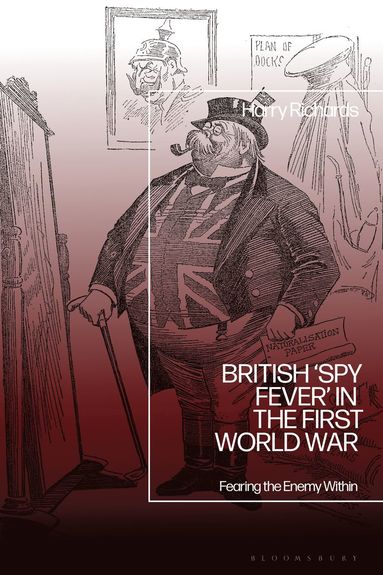Kommande

1439:-
An exploration of how British society experienced 'spy fever' during the First World War. Following the declaration of war in 1914, German spies were sighted across Britain as a potent form of 'spy fever' supposedly gripped the nation. This book questions the extent to which British society was truly terrified of German spies and explores the broader impacts of secret warfare during the early stages of the First World War. Harry Richards analyses the belief that a clandestine network of spies and saboteurs, mostly comprised of naturalised aliens domiciled in Britain, had successfully infiltrated all elements of society and were poised to destroy Britain's war effort from within. Although that danger never fully materialised, the spy peril remained a dominant feature of radical politics and popular culture throughout the First World War. Why images of German spies were so appealing and enduring during this period is the subject of this book. British 'Spy Fever' in the First World War contends that our understanding of 'spy fever' is in need of significant revision. Whereas previous studies typically characterise society's reaction to the spy peril as one of hysteria, this book shows that our understanding of 'spy fever' should encompass a wider variety of emotions and experiences. British society was certainly obsessed with images of German espionage, but this seldom resulted in psychological disorder. Each chapter therefore examines different emotional experiences: alarm, terror, excitement, anxiety, hope, anger, and enjoyment to highlight the diverse and complex reactions towards the enemy within.
- Format: Inbunden
- ISBN: 9781350523432
- Språk: Engelska
- Antal sidor: 304
- Utgivningsdatum: 2025-09-18
- Förlag: Bloomsbury Publishing PLC

